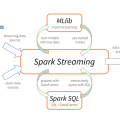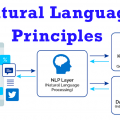- August 10, 2023
- Posted by: team SOUTECH
- Category: Blog, Data Analysis and Virtualization, Data Science Free Training, Others, Technologies

Introduction: In the era of data-driven decision-making and rapidly advancing technology, data ethics and privacy have become critical considerations in the field of data science. As data scientists harness the power of vast datasets to drive innovation and solve complex problems, they must also navigate the ethical challenges and protect individual privacy rights. In this article, we will delve into the world of data ethics and privacy, understand the principles that guide responsible data science, and explore the measures to safeguard sensitive information.
Section 1: The Importance of Data Ethics
– Defining data ethics: Explaining the concept of data ethics and its role in guiding ethical decision-making in data science.
– The impact of data science: Understanding how data science can have far-reaching consequences on individuals, society, and organizations.
Section 2: Ethical Principles in Data Science
– Transparency and explainability: The importance of providing clear explanations of data processing and model outcomes to stakeholders.
– Fairness and bias: Addressing issues related to biased data, algorithmic fairness, and mitigating discrimination.
– Accountability and responsibility: Taking ownership of the ethical implications of data-driven decisions and actions.
Section 3: Privacy Protection in Data Science
– Understanding privacy concerns: Identifying potential risks and challenges in handling personal and sensitive data.
– Data anonymization and pseudonymization: Techniques for protecting privacy while preserving data utility.
– Privacy by design: Incorporating privacy considerations into the design of data systems and processes.
Section 4: Compliance and Regulations
– Overview of data protection regulations: Understanding laws such as GDPR (General Data Protection Regulation) and CCPA (California Consumer Privacy Act).
– Ensuring compliance: Implementing practices to adhere to legal requirements and protect individual rights.
Section 5: Responsible Data Collection and Use
– Purpose limitation: Ensuring data is collected and used only for the intended purposes and not repurposed without consent.
– Data minimization: Collecting only the necessary data to achieve specific objectives and reducing the risk of data breaches.
Section 6: Data Ethics in Machine Learning and AI
– Algorithmic accountability: Addressing the ethical considerations in the design and deployment of AI models.
– Human-centric AI: Focusing on the human impact and societal implications of AI-driven solutions.
Section 7: Case Studies and Real-world Examples- Ethical challenges in data
-driven decision-making: Examining cases where ethical dilemmas arose in the use of data.
– Responsible data practices in organizations: Highlighting companies and institutions that prioritize data ethics and privacy.
Conclusion:Data ethics and privacy are foundational pillars that uphold the trust between data scientists, organizations, and the public. By embracing ethical principles and implementing robust privacy protection measures, data scientists can navigate the complex landscape of data-driven innovation responsibly. Striking the right balance between innovation and responsibility is essential to ensure the transformative potential of data science benefits individuals and society as a whole.If you have any other topics in mind or any specific requests, feel free to let me know!





